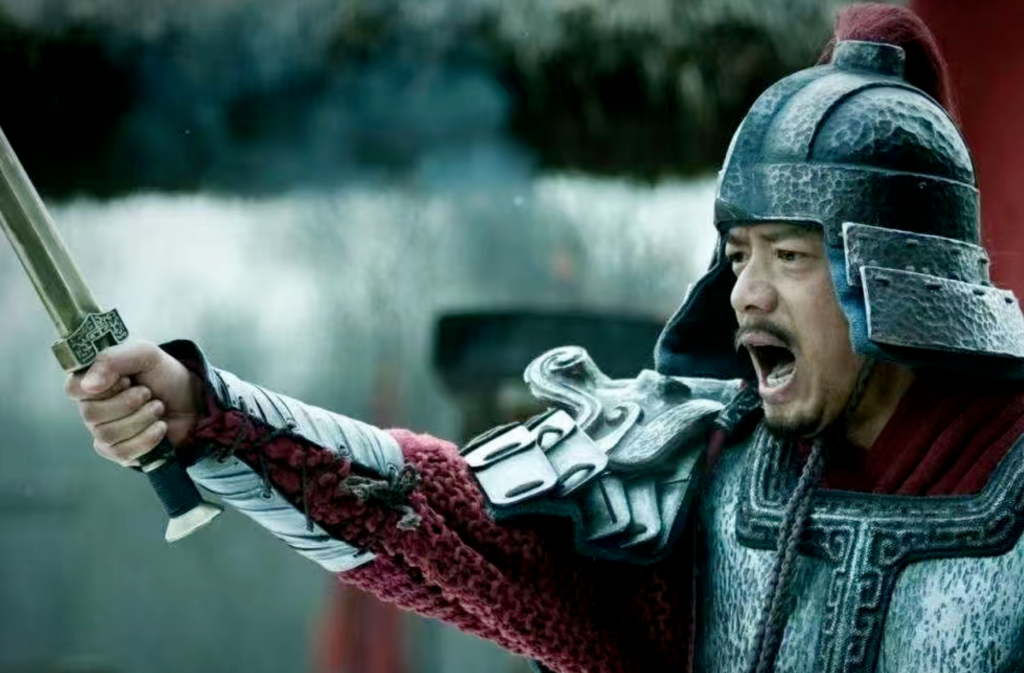Han Xin is one of China’s most legendary military commanders. Many people believe that he started his career as a top general under Liu Bang, engaging in high-level strategic discussions from the beginning. However, even the greatest talent needs experience to truly shine. So, before leading independent campaigns that crushed enemy forces and conquered entire states, how did Han Xin gain the skills to command an army?
A Noble Beggar? Han Xin’s Early Life
Sima Qian, the famous historian, described Han Xin as a poor commoner who relied on others for food. He was often disliked by his neighbors for being lazy and not taking up any official work or business. But was he really just an ordinary beggar with unrealistic dreams of success?
Probably not. First, Han Xin was known to be tall and always carried a sword—something unusual for someone from the lowest social class. Second, his literacy suggests he came from a family that once had wealth or status. At one point, he lived in the home of a local official, a tingzhang, who supported him for months. If Han Xin were truly just a useless freeloader, why would an official willingly feed him for so long?
The most telling clue about Han Xin’s background comes from a washerwoman who once gave him food out of pity. When Han Xin promised to repay her when he became successful, she dismissed the idea, saying she did it simply because she felt sorry for a “fallen noble”—specifically, someone from the royal family of Han (a state destroyed by Qin).

If this is true, Han Xin was not just a random commoner but a distant member of a former royal family. His ancestors were likely Korean nobility (not from modern Korea, but the ancient Korean state of Han). His father might have died in the wars when Qin crushed the remnants of Han’s ruling family. His mother, possibly literate herself, fled with baby Han Xin to the town of Huaiyin, bringing with her an old sword and books on military strategy.
Growing up, Han Xin probably saw himself as a nobleman who had lost everything. This could explain why he never tried to become a minor government official or a merchant—he believed he was destined for greater things.
The Shadow of Xiang Yu: Learning from the Best
When the Qin Dynasty collapsed, Han Xin seized his chance and joined Xiang Liang’s rebellion. After Xiang Liang’s death, he followed Xiang Yu, the most powerful warlord of the time. However, despite his ambitions, Han Xin was given only a low-ranking position. In his own words:
“I served Xiang Yu, but my rank was no more than a ‘langzhong,’ and my role was merely ‘holding a halberd’.”
To understand what this means, let’s break it down:
- Langzhong: A close attendant to the ruler, responsible for guarding him, giving advice, and even going on diplomatic missions.
- Holding a halberd: A rank in Xiang Yu’s army that paid 500 bushels of grain per year—the same rank that Liu Bang’s elite cavalry general, Guan Ying, initially held.
In short, Han Xin wasn’t just a random foot soldier. He was an inner-circle advisor and bodyguard to Xiang Yu, witnessing his decisions up close. He saw Xiang Yu’s victories, including his legendary Battle of Julu, and also watched how Xiang Yu negotiated, divided territory, and made both friends and enemies among other warlords.
He also built strong relationships with Xiang Yu’s top commanders, including Zhongli Mo. These connections later played a crucial role in Han Xin’s career after he switched sides.
But why did he leave Xiang Yu? Simple: Xiang Yu ignored his advice. Han Xin repeatedly proposed strategies, but Xiang Yu never listened. Feeling unappreciated, Han Xin decided to bet on a new employer—Liu Bang.
A Gifted Student Needs a Teacher: Liu Bang as Han Xin’s Mentor
Unlike Xiang Yu, Liu Bang was not a military genius. However, he had two key strengths:
- He recognized talent.
- He was willing to let others learn through experience.
When Liu Bang marched his army back into Guanzhong, retaking the region from Qin’s last remaining forces, Han Xin was there. He didn’t lead the campaign yet—he was still a student, observing how Liu Bang fought.
But Liu Bang had an issue: the war wasn’t over. He needed a new army trained quickly, and someone to handle the final stages of the war against Qin’s last general, Zhang Han.
From Theory to Practice: Han Xin’s First Command
This was Han Xin’s golden opportunity. Liu Bang put him in charge of training and organizing the new army. Some historians argue that Han Xin created a completely new military system, replacing Xiang Yu’s tactics with Qin’s more disciplined formations. However, given that Han Xin never served in the Qin military, this seems unlikely.
Instead, Han Xin likely based his training methods on what he had learned from watching Xiang Yu. Having seen firsthand how Xiang Yu prepared his troops, Han Xin adapted those strategies to fit Liu Bang’s army.
Soon after, Han Xin was given his first independent command: leading the siege against Zhang Han, who had retreated into a city called Feiqiu. This was the perfect first test for a young commander—Zhang Han’s army was already weakened, and Han Xin had the luxury of time to experiment with different tactics.
Leveling Up: Defeating Zhang Han and Growing as a General
If Han Xin had been thrown into a large-scale battle against a strong opponent from the start, he might have failed (just like Zhao Kuo or Ma Su, who lost wars because they had no real battlefield experience).
Instead, he learned by doing, starting with a long siege that allowed him to test his ideas, make adjustments, and turn theory into practice.
By the time Liu Bang suffered a major defeat at the hands of Xiang Yu, Han Xin was no longer a student. He had built his own army, trained it, and fought real battles. When Liu Bang needed someone to turn the war around, Han Xin was ready.

From Apprentice to Master
Han Xin’s rapid rise was not just due to talent—it was the result of carefully gaining experience step by step.
- Observation – He spent years watching Xiang Yu and his generals, learning their strategies.
- Training – He used his knowledge to train a new army for Liu Bang.
- First Command – He got hands-on experience by leading small-scale operations.
- Major Battles – Once he proved himself, he was given bigger responsibilities, eventually becoming the Grand General of Han.
By the time he led the famous campaigns against Wei, Zhao, and Qi, he was no longer just a man with ideas—he was a battle-tested commander.
The Takeaway
Han Xin’s story teaches us an important lesson: talent alone isn’t enough. Even the most gifted individuals need experience to truly succeed.
Had he been given a large army from the start, he might have failed like so many others. Instead, by gradually learning through smaller battles, he became one of history’s greatest military minds.
And in the end, that slow, methodical growth was what made Han Xin an unstoppable force in the wars that shaped China’s future.

No comments yet.